Embodied Transition Design Retreat
A heart-body-mind experience for transformational futures
In mid-April we shared a transformative three days with an inspirational group of people at our first Embodied Transition Design retreat in Southern Finland.
At the Tuomiston Kartano retreat centre, we were warmly hosted by Tuuli who cooked us delicious vegetarian meals, and welcomed us into her family’s generational home. Immersed in the magic of Karkku’s rough but awakening Spring nature, the centre shared with us its sprawling view of Palvialanlahti melting in the sun, surrounded by forested hills and a foreground of sleepy apple trees.
As an openly experimental space, the retreat’s intention was to break away from our fast paced lives, and carve a space to slow down, reconnect and recentre. Across the three days, we led a full but adaptive schedule of activities intertwining somatic practices, regenerative leadership approaches and transitions design methods.
Together the group crafted a safe space to journey through wicked problems: first exploring their systemic complexities and entangled root causes; then collectively imagining a plurality of desirable futures; and finally designing non-linear pathways to these through individual and collective transitions. In particular, we found ourselves returning to the theme of separation - discussing how our separation from nature and ourselves, and our societal tendency to categorise and compartmentalise, tracks as the root cause to many of the wicked problems we identified.
Somatic exercises and lessons in regenerative leadership were sown throughout this journey, encouraging the group to approach transitions work in a more embodied, intuitive, emotional and ecosystemic way - connecting our minds back to our hearts, bodies and environments. The futures we imagined recentred connectedness to nature, ourselves and each other, and asked what interventions and deliberate transitions might better align with these more collective and natural ways of being.
Our Learnings
The rich conversations, experimental approach and space for openness and vulnerability was a transformative experience, and offered many learnings that have equipped us more holistically to work towards transformational futures. In part, we are still digesting the experience and realising these learnings, but here we share some first reflections:
01. Heart-Body-Mind Connection
Grounding, breathing, connecting with ancestral and natural knowledge encouraged us to approach transitions design in a more embodied and intuitive way, linking our minds back to our hearts, bodies and nature. These practices transcended rational thinking and developed our ability to be present and interactive, in order to forge more empathetic, systemic and collective future visions, pathways and interventions. In doing so, however, we also became aware of how working in this more interconnected way can require lots of energy - and so whilst embodied and regenerative practices were empowering, they also crucially directed us to slow down and rest.
“This combination of methods was a shared dream for Zeynep, Anni and myself. It was beautiful to see how different sessions complemented one another and created this whole-systems approach. I'm grateful for all the wisdom, questions, deep insights, and feedback each one brought into the shared space.” - Iina
“The retreat was a truly beautiful and deeply touching experience for me. I learned a lot about bringing embodied practices into more rational thinking processes and felt the power of combining different approaches to enable deeper presence and connection. This invited new thoughts that were more centred in relation to ourselves and aligned with our purpose, and with a greater connection to our body’s sensations and heart’s vulnerability.” - Anni
02 - Carving space and time
Though a core intention of the retreat, a key learning was the value of creating spaciousness and unrestricted time for not only exploring wicked problems, but also for experimenting with the ways in which we explore them. The retreat provided a rare opportunity to sit with our ideas and discussions, to reflect and embody learnings, without the need to rush to the next to-do on our lists. Fluidity in our programme and an open mindset from the whole group gave us first hand experience of the importance of slowing down and creating space to think and experience more intuitively.
“In many ways, this weekend offered all of us a space to prototype and practice a new way of being, relating, and working together - including in how we explored the facilitation role, shifting between leading some sessions and immersing ourselves in others.” - Iina
“The hosts managed to somehow create a very timeless feel for the whole weekend. Nothing was forced or hurried, but we still experienced so much and left with bags of insights.” - Participant
“What kinds of thinking and wisdom are lacking from our business-as-usual, as we address complex systemic problems?. Operational modes focus so much on increasing efficiency, outputs and meeting targets through a purely analytical and intellectual way of seeing the issues. But when we are working under pressure, multi-tasking and focusing on urgent needs, we create blind spots in society. Decisions are made by busy people, with no time or capacity to think holistically and creatively. In doing so we have damaged our environment and social fabric in a way that celebrates mostly concrete, quantifiable ways of being and knowing. The retreat responded to this need to slow down, and start exploring other ways of working, questioning our core values, and reconnecting mind, body and heart” - Zeynep
03 - Learning, growing, building together
Whilst the different methods we practiced invited us to reimagine the way in which we engage with sustainability questions, we owe so much to the safety of the space that the group created together at the retreat. The trust that we worked hard to nurture allowed for emotions and vulnerability to become a key part of the experience; the catalyst for our learnings and the thread that stitched the weekend together. Through this, and our exploration of separation throughout, we were aptly reminded of the importance of community and connection for building resilience in the challenging work we do.
“The weekend strengthened the knowing that we are not alone in working towards a more fair and sustainable future - though I also know that transformation takes time, and the knowledge and insights we received can take weeks, months, or even years to integrate. That´s the beauty of deep work.” - Iina
“The overall wonderful vibe of the group will give me courage to do brave transition work for a long time. I have this feeling that I'm not alone and there are other people creating new norms out there who have my back even if they aren't in the same meeting rooms with me. I think I've already changed how I enter a space and what kinds of actions I dare to take.” - Participant
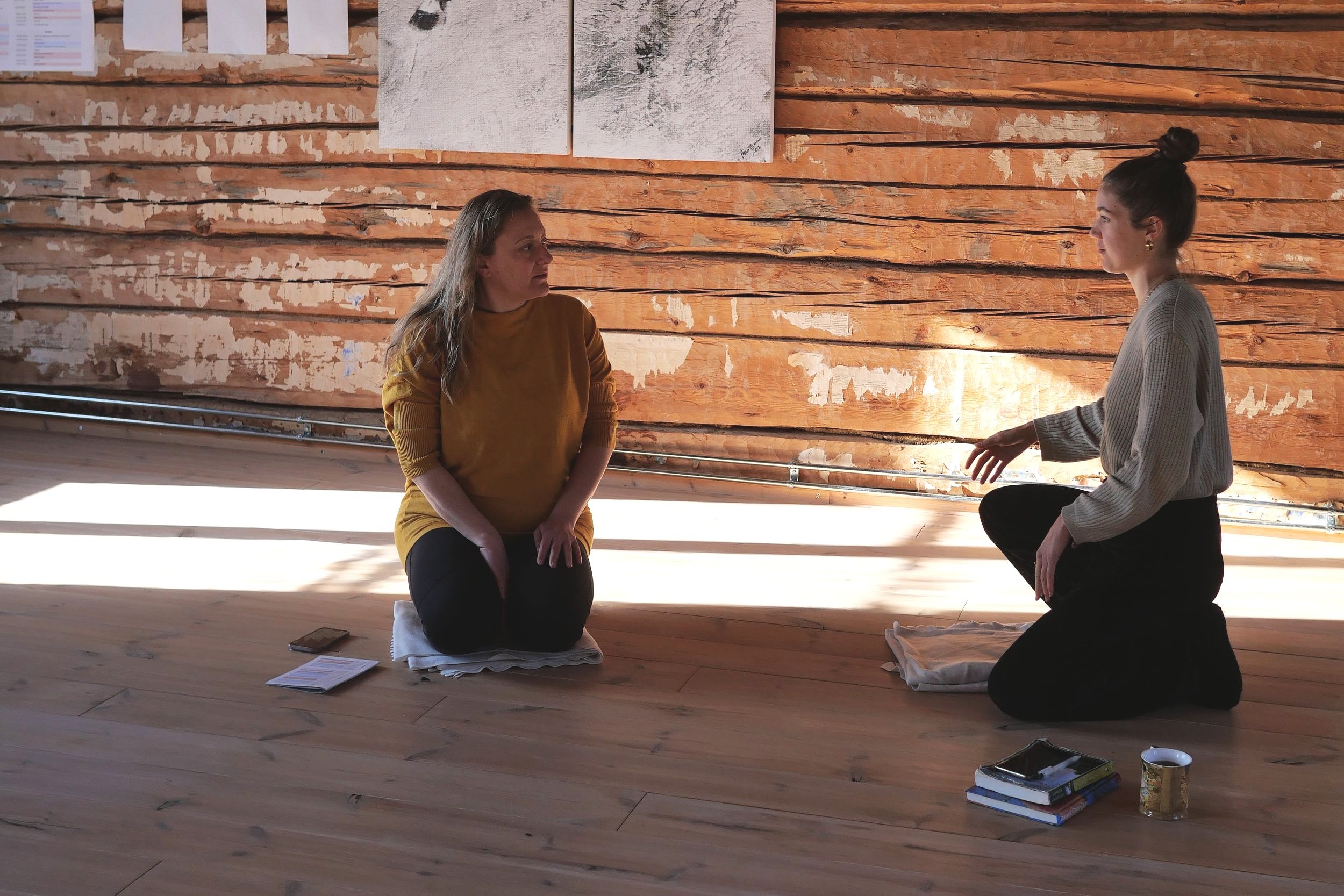
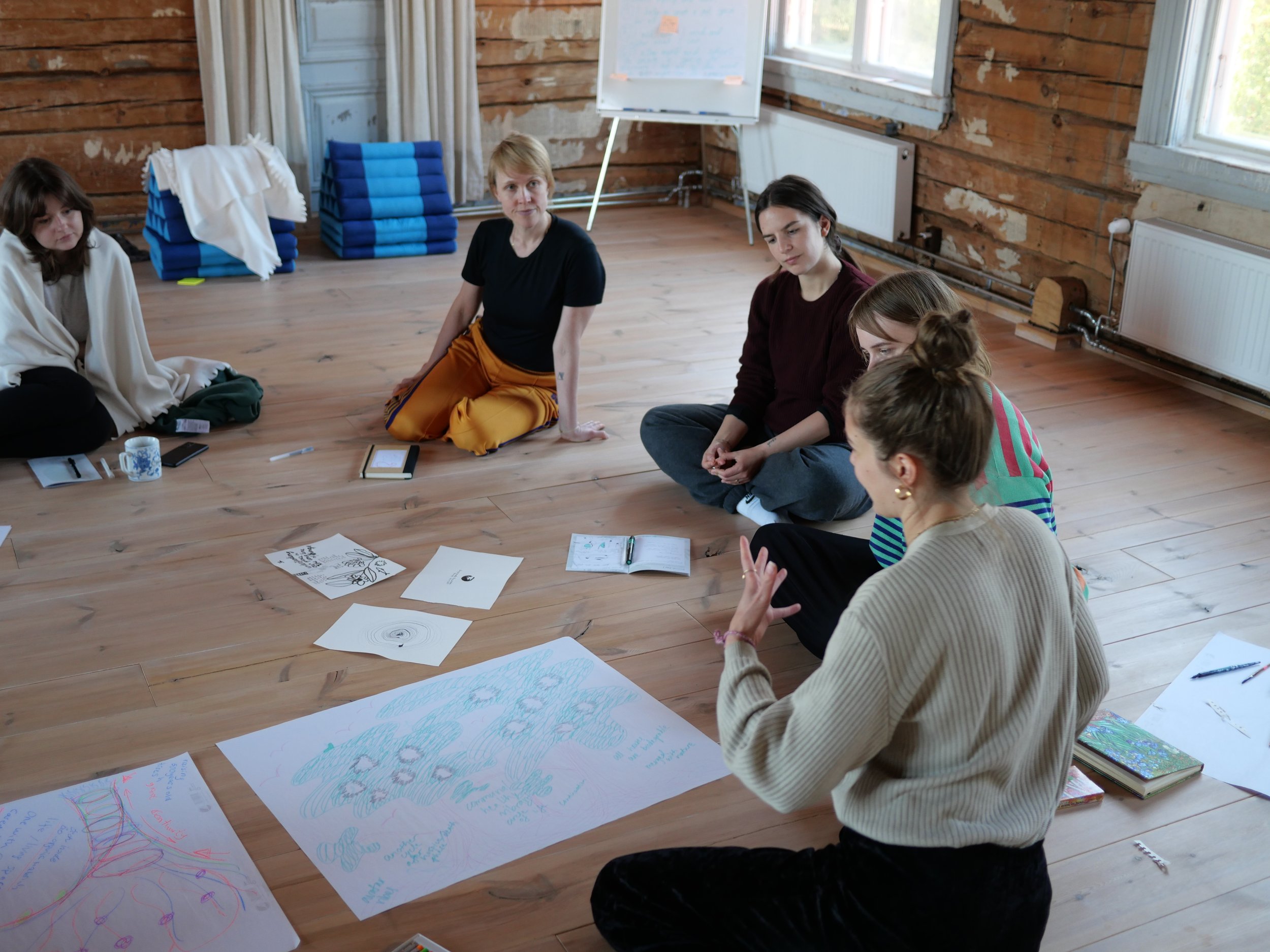
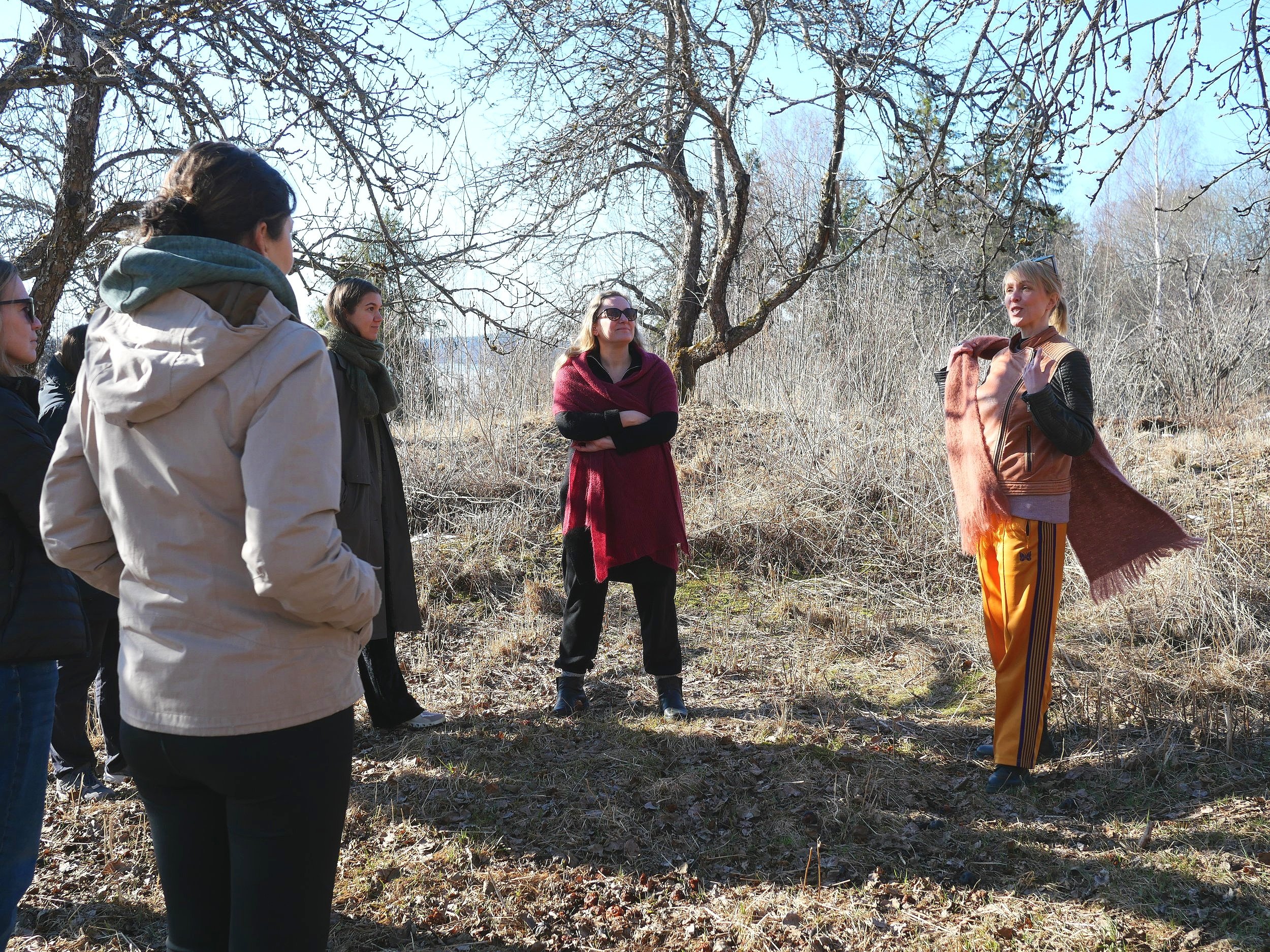
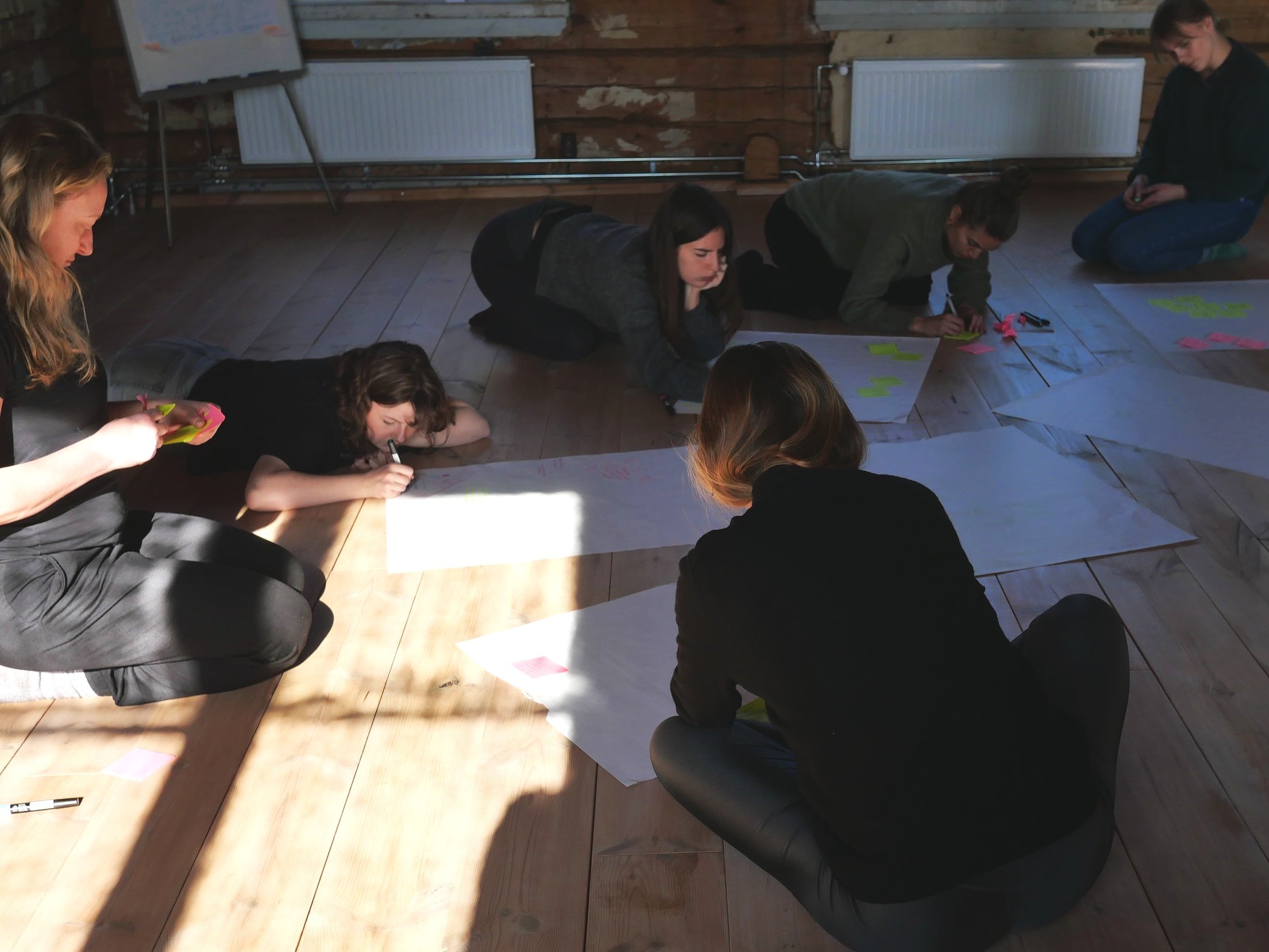
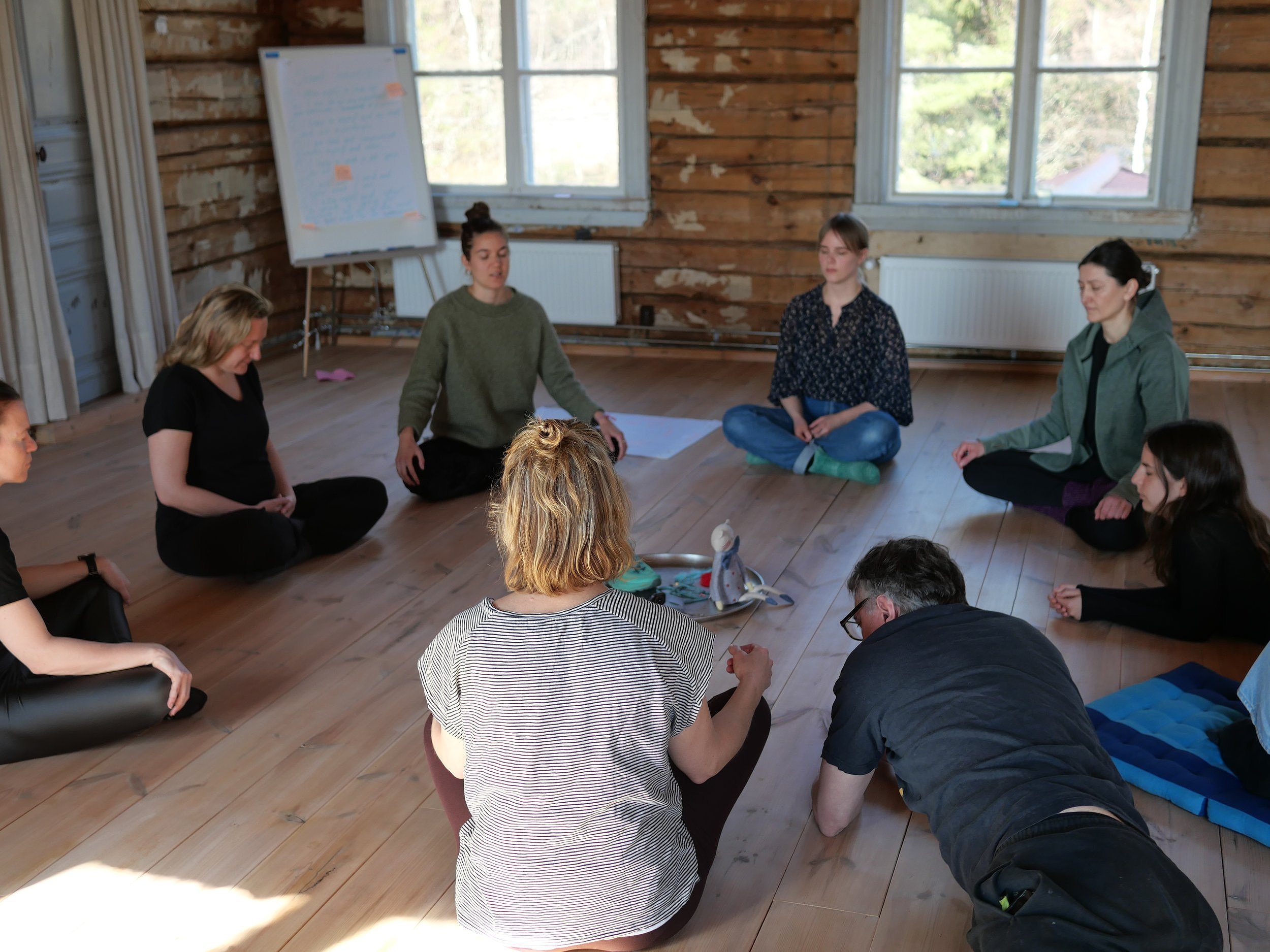
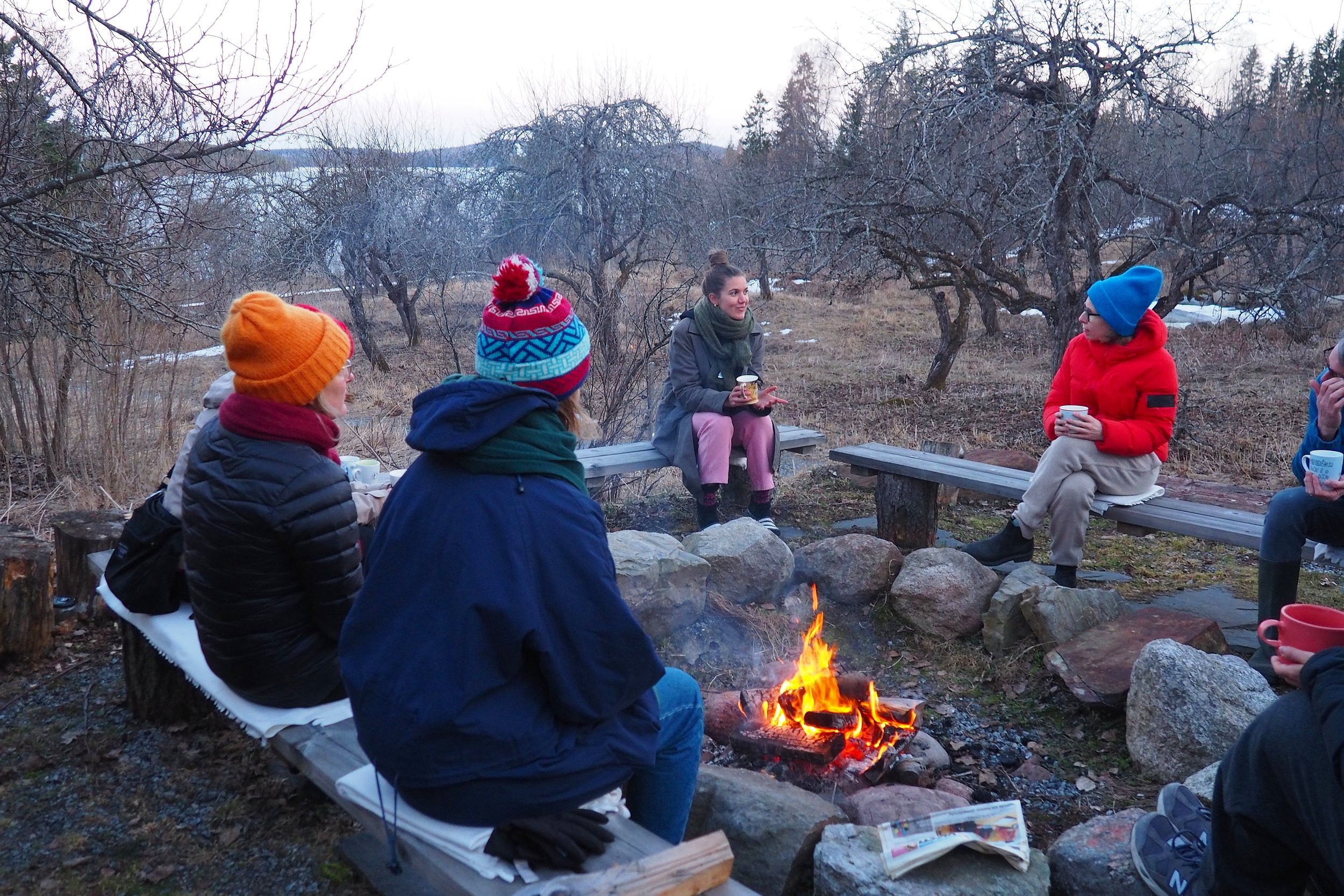
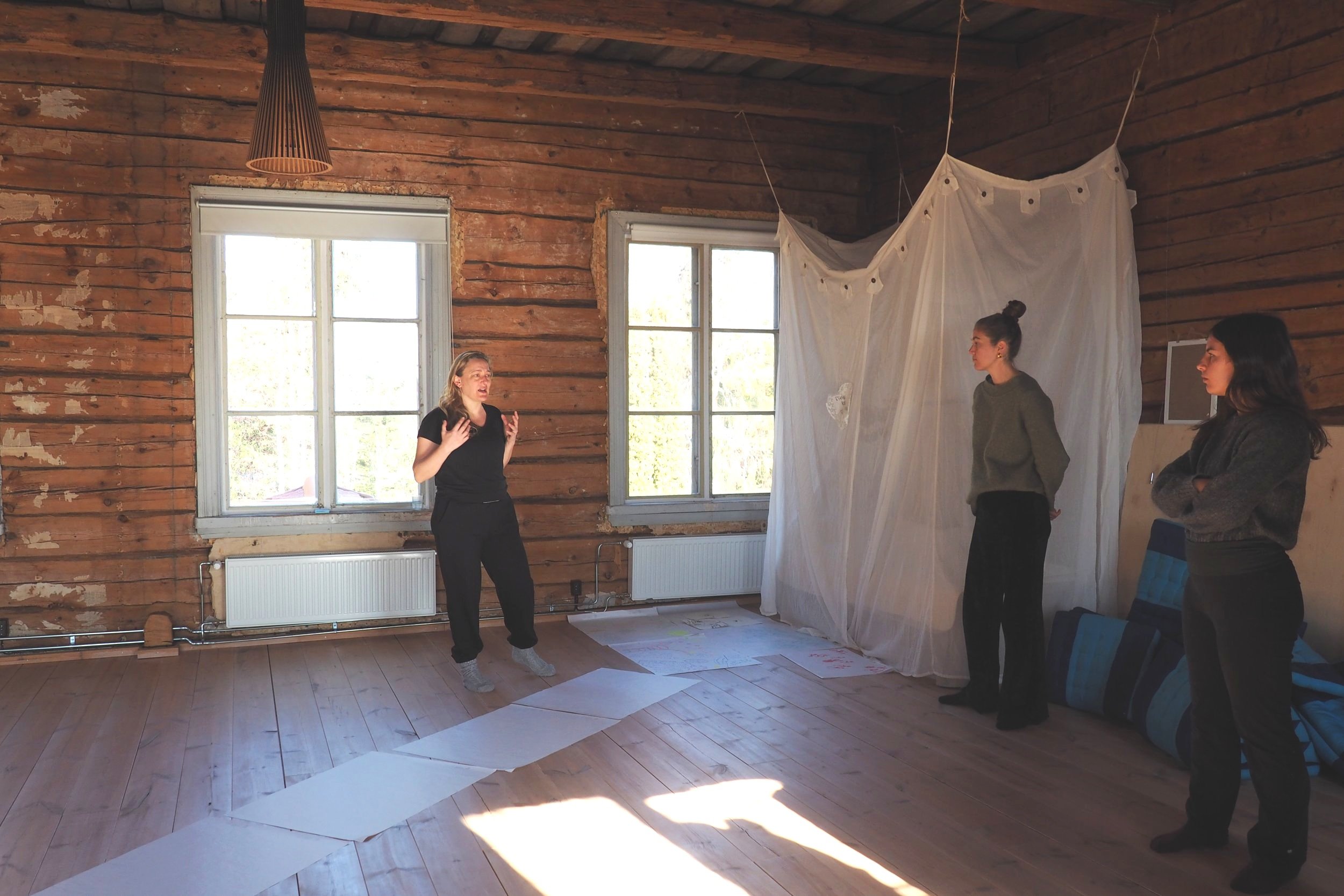
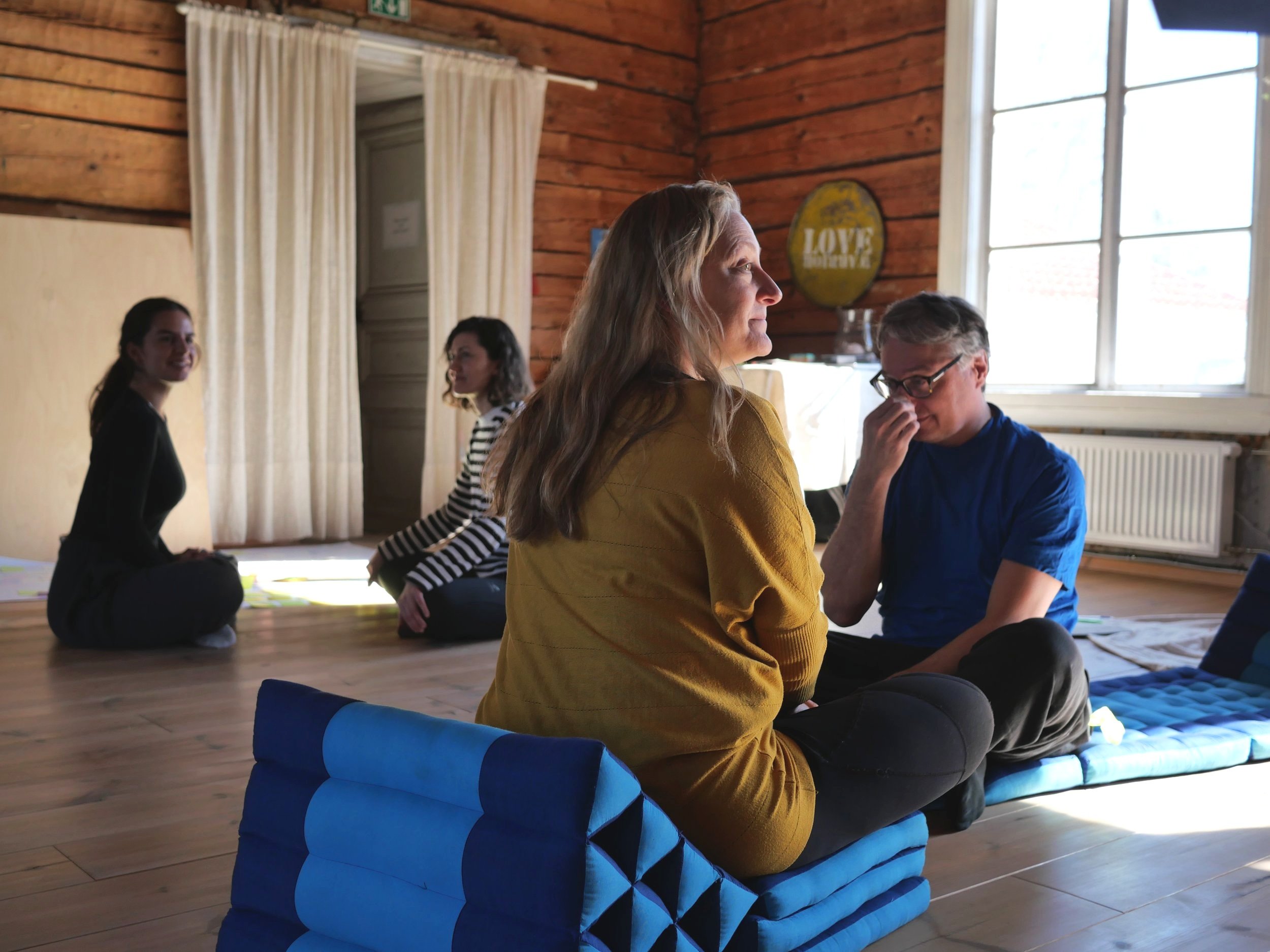
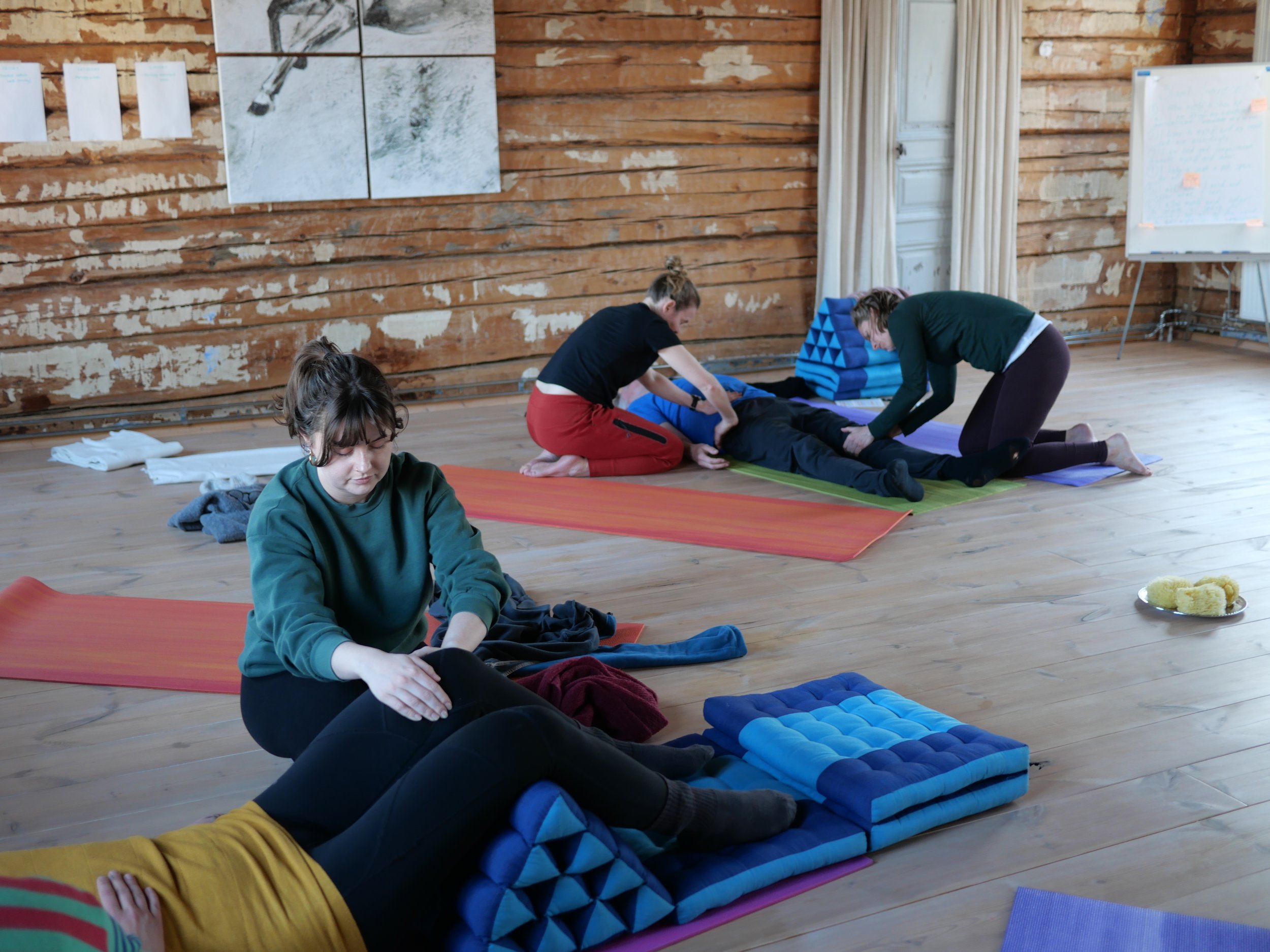
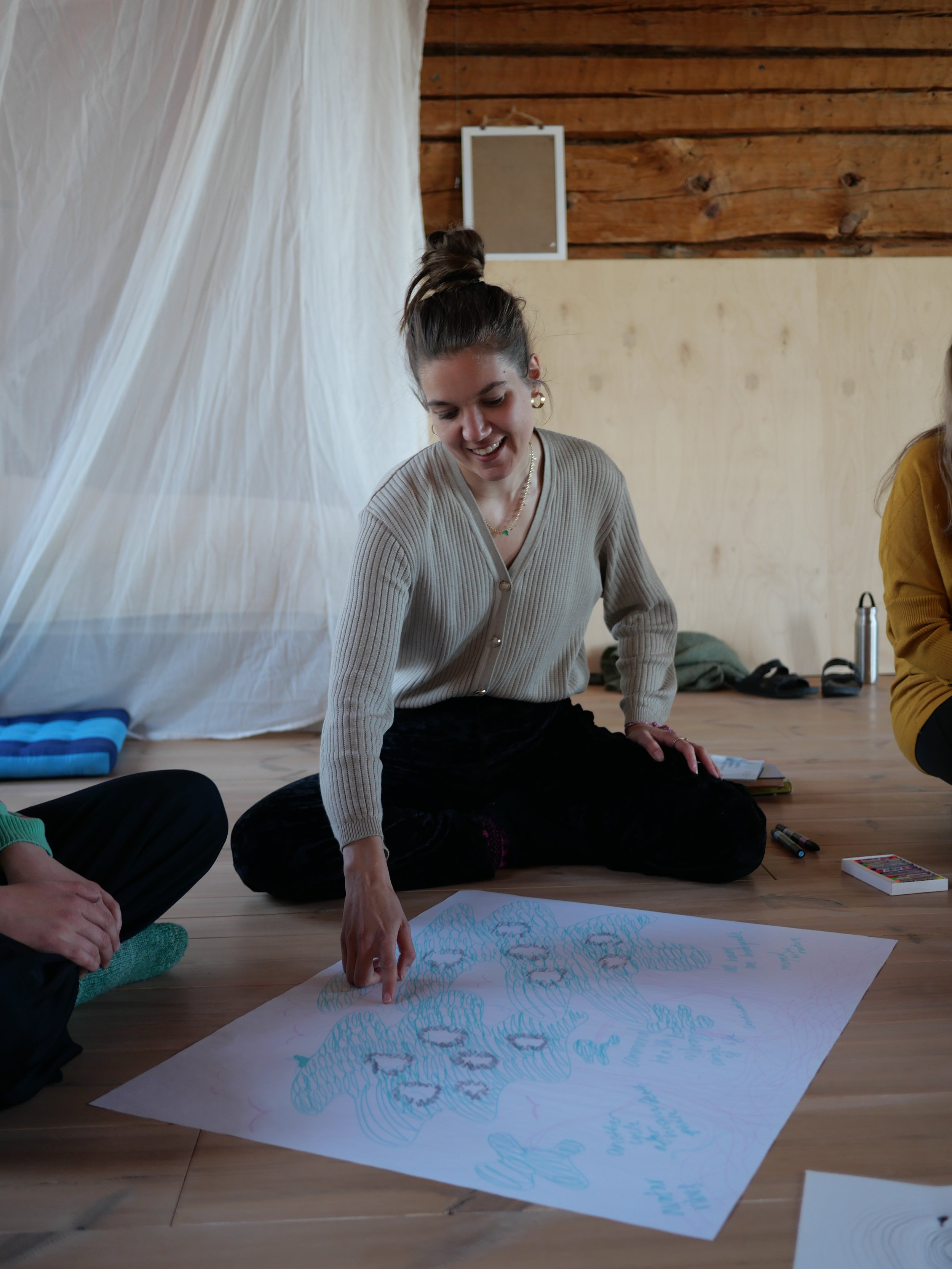
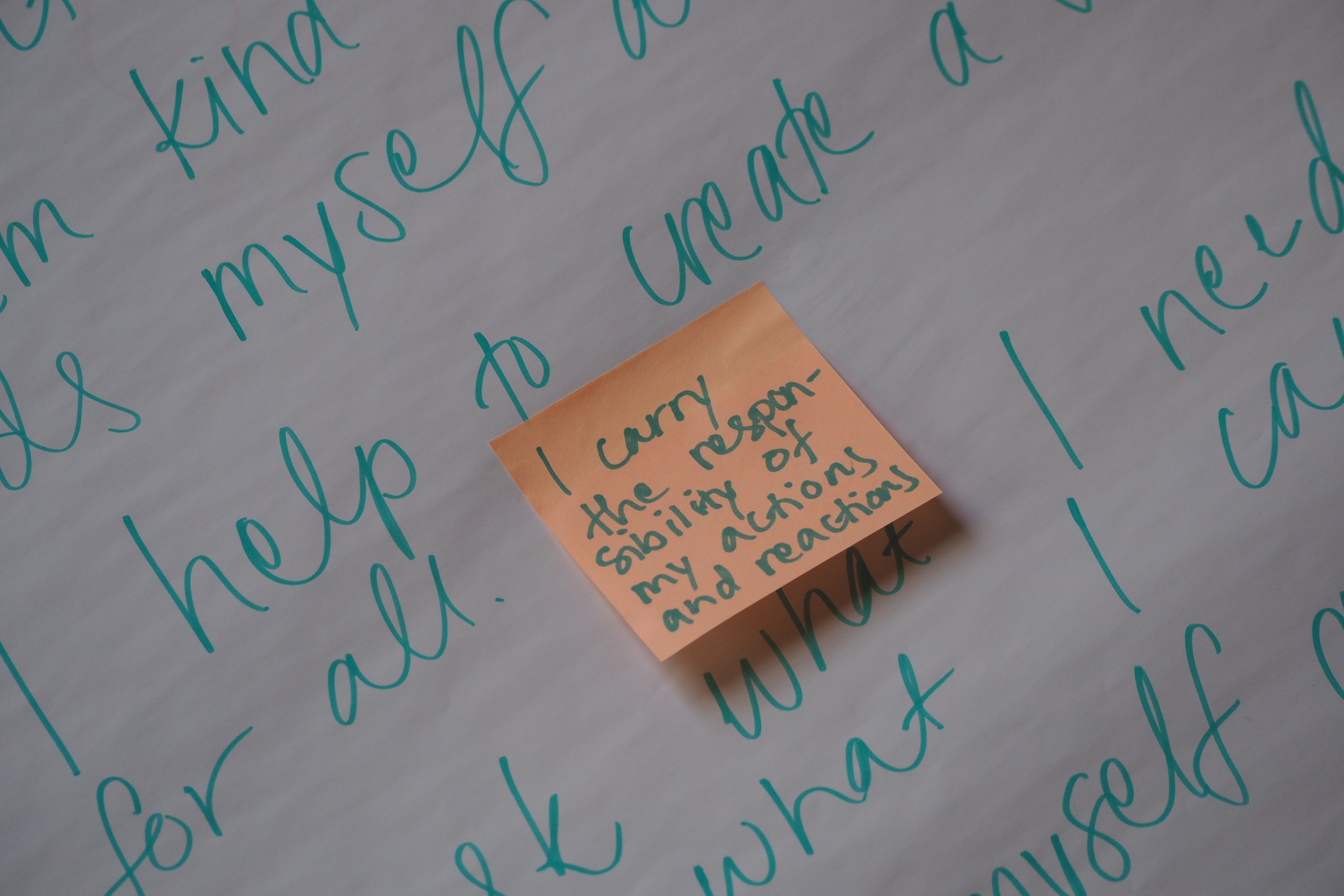
What’s next
We are so grateful to those who shared their time and wisdom with us during this retreat.
As we continue to process our individual and collective learnings, and the valuable feedback from participants, we are beginning to imagine the next iteration of this retreat on 4-5th May 2024.
“This weekend is for everyone who wants to align their working methods with the changes they want to see in the world. We can't solve the problems we've created with the same ways of thinking that got us in the wicked messes we're now dealing with. This retreat helped me understand the worldviews underlying our environmental, economic, social and democratic systems which all seem to be unravelling. We learned new ways of moving through the world and taking leadership that will enable us to create the regenerative future we want to see. Spoiler: hearts, hands and heads will all be required” - Participant






